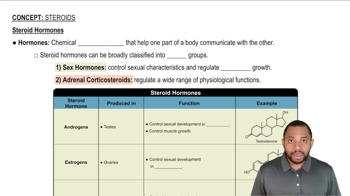For each of the following fatty acids, give the shorthand notation for the number of carbon atoms and double bonds, and classify as saturated, monounsaturated, or polyunsaturated:
a. linoleic acid
 Verified step by step guidance
Verified step by step guidance Verified video answer for a similar problem:
Verified video answer for a similar problem: